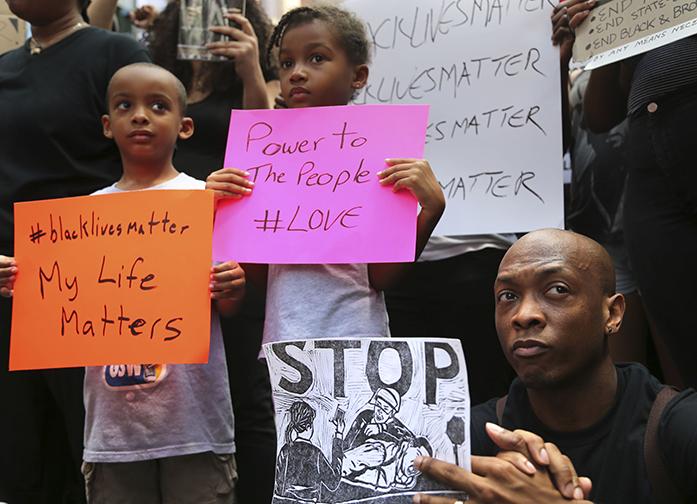Following the shooting death of two African-American men, Alton Sterling in Baton Rouge, Louisiana, and Philando Castile in St. Paul, Minnesota, it would appear as though race relations in this country are nearing a boiling point. This is especially so after the recent shooting in downtown Dallas that claimed the lives of five police officers and injured more. As we question how and why these tragedies have occurred, we must first understand that ideology alone cannot be the deciding factor when it comes to culpability.
It is unclear who is supposed to shoulder the blame for all this bloodshed, but casting blame toward the Black Lives Matter movement and President Obama does far more harm than good. Acknowledging the implications of systematic racism and oppression should not be confused with instigation. Turning a blind eye to the festering issues in this country does nothing to rectify the problem, and neither does blaming the marginalized and those who speak on their behalf for noting on their struggle. The problem is not as simple as #BlueLivesMatter versus #BlackLivesMatter, and those who wish to take a reductionist mindset to the problem reflect a general apprehension to fully engage with the problem of race relations.
Reducing centuries of institutionalized racism into a solely two-sided argument does justice to neither sides. The demand for equality and justice for black citizens in this country does not necessarily amount to an offensive stance toward law enforcement. However, in order to truly attain equality, the contributions of law enforcement to further perpetuate a culture that belittles and undermines the lives of black people on a daily basis must be recognized. Demanding culpability on behalf of law enforcement does not have to equate to the fictional war on police some wish to cite when implicitly contradicting the goals and intentions of the Black Lives Matter movement.
It is possible to disagree with the treatment of black people in this country and not wish death upon law-enforcement personnel, and trying to simplify the conversation to such a false causal relationship demonstrates a desire to use support for one ideology to detract from another. A belief in the integrity of law enforcement, which would require willful ignorance at times, does not mandate a denial of centuries of oppression partially carried out by the institution of law enforcement. It is possible to maintain law enforcement has a necessary position in this society while acknowledging the failings of its current incarnation.
The volatility present in modern race relations cannot be summed up by pitting two hashtags against each other. It is not as simple as picking a side because the sides in this context are not mutually exclusive. Ultimately, the issue is whether one wishes to support the struggle for a fairer and more equitable society, and hiding one’s intentions behind a pro-police stance doesn’t excuse the need for an opinion on that issue. One’s support for the police does not have to be tantamount to a lack of support for the Black Lives Matter movement, and supporting the Black Lives Matter movement is not the same as condoning the inexcusable loss of life that occurred in Dallas.



